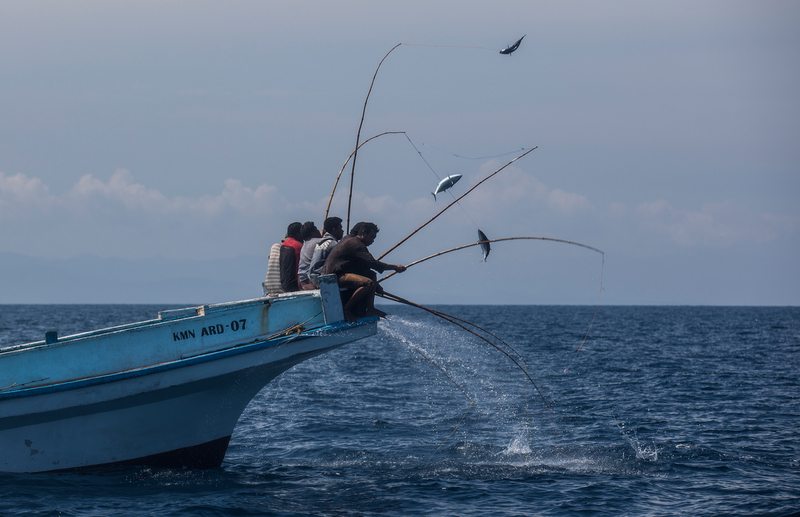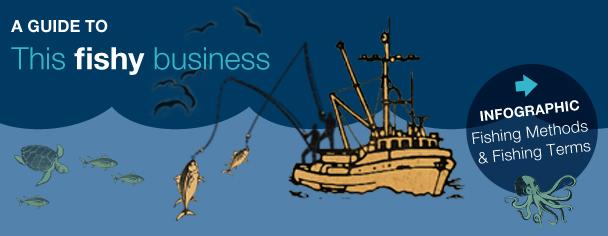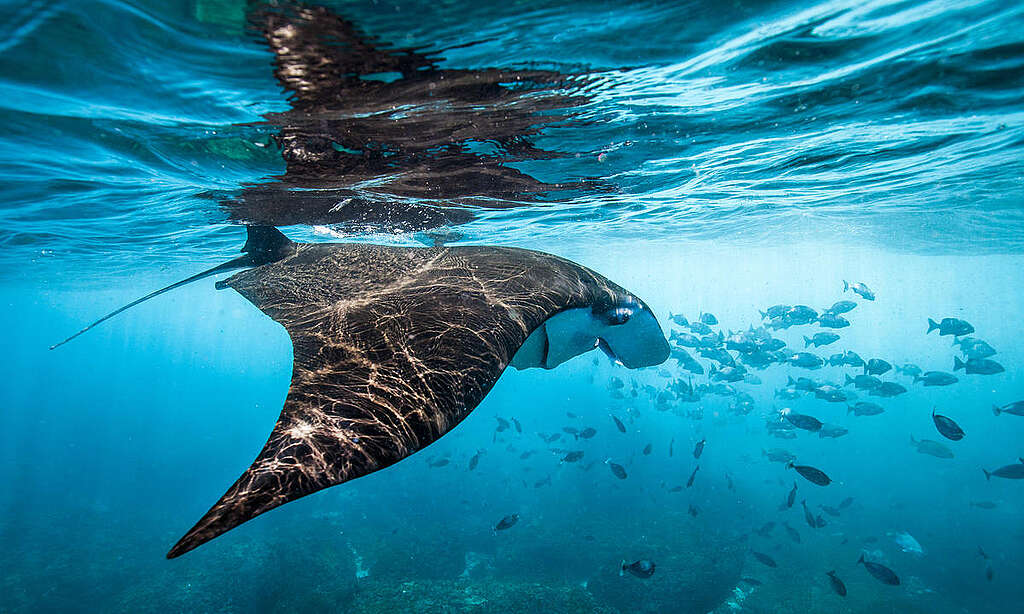There are plenty of canned tuna options on our supermarket shelves and it can be confusing to know which one to choose. If there is one thing you should remember it is this – choose ‘pole and line’ caught tuna.


Why does tuna fishing matter?
Tuna fishing is big business – it is the world’s most popular fish. The way it is caught has a huge impact on the health of our oceans and coastal communities. Currently, most tuna is caught using large-scale industrial fishing methods, which threaten fish stocks and the marine environments that support them.
Thankfully, a more sustainable fishing method – pole and line – is already well and truly established on Australian shelves. Almost every brand or supermarket has a pole and line option.
6 reasons to change your tuna to pole and line
- Fewer sharks, turtles, whales and dolphins will be killed.
Most canned tuna is caught with FADs, which attract marine life, and huge nets called purse seines. This method scoops up and kills anything in its reach – from the target tuna fish, to other fish like sailfish and sharks, even turtles and small whales. It’s known as bycatch. Pole and line fishing is much more selective. Other creatures are rarely caught (it’s pretty hard to catch a whale with a fishing rod!) and if they are, they can usually be returned to the water unharmed.
- It’s easier to keep a lid on overfishing.
Right now, fishing vessels are catching fish faster than nature can replenish them. The UN states that the global fishing fleet is 2.5 times greater than it needs to be to catch a sustainable amount of fish. The bulk of fish is also caught by a small number of fleets. Currently, 4% of the industrial fishing boats catch as many fish as the remaining 96%. Giant fishing boats called ‘Super seiners’ can catch as much tuna in a single trip as some Pacific Island states catch in a year. Buying pole and line tuna instead keeps access to fish with coastal fishermen, without adding more giant fishing vessels and factory ships into the mix.
- Tuna species under pressure will be given a break.
There are different species of tuna and the condition of each species varies. For instance, skipjack tuna is in the healthiest state, while bigeye is in serious decline and yellowfin is at risk. Conventional purse seine fishing with FADs may target skipjack tuna, but the catch can also be up to 20% baby bigeye and yellowfin tuna, caught before they’ve had a chance to breed. These are the species often most important to coastal state domestic industries, including in Australia.
- More local fishermen will be employed.
While most tuna is caught in or near Pacific Island waters, the biggest fishing vessels come from nations far away and use sophisticated technology with little crew. Pole and line fishing requires more fishermen to be involved as fish are caught one by one with a hook and line. They usually work coastally, so more locals are employed; and they spend just days or even hours at sea away from their families, not months. Pole and line fishing provides vital employment in island states, without the harmful impact on the ocean.
- Developing coastal nations will benefit.
The Pacific tuna industry has been valued at over $7 billion per year, but most of the profits don’t end up with the countries whose waters have the tuna. In the Pacific, which provides 60% of the world’s tuna, only a tiny fraction of the value stays in the local economy. Most developing coastal states can’t afford the expensive industrial vessels – for the price of a high tech purse seine vessel, around twenty pole and line vessels can be bought. This means more opportunities for local ownership.
- It won’t hurt your hip pocket!
Not long ago, if you wanted to buy a sustainable tuna product it was three or four times the price of a regular can of tuna. Thanks to consumer pressure, many of the big brands now offer a pole and line product that is affordable. The more people who swap destructively caught tuna for pole and line tuna, the more that price will continue to fall.
P.S. If you ask us, buying a tuna product that doesn’t destroy our oceans tastes better too!
Note: All fishing has an impact on the environment, and for pole and line it’s still important that the target species are managed sustainably and the bait it uses is managed sustainably. But conventional tuna fishing with FADs is so destructive that for Australian consumers, the choice is easy.

Sign our petition to call on the Australian government to urgently ratify the Global Oceans Treaty, and create a sanctuary for the South Tasman Sea and Lord Howe Rise.
Sign petition

